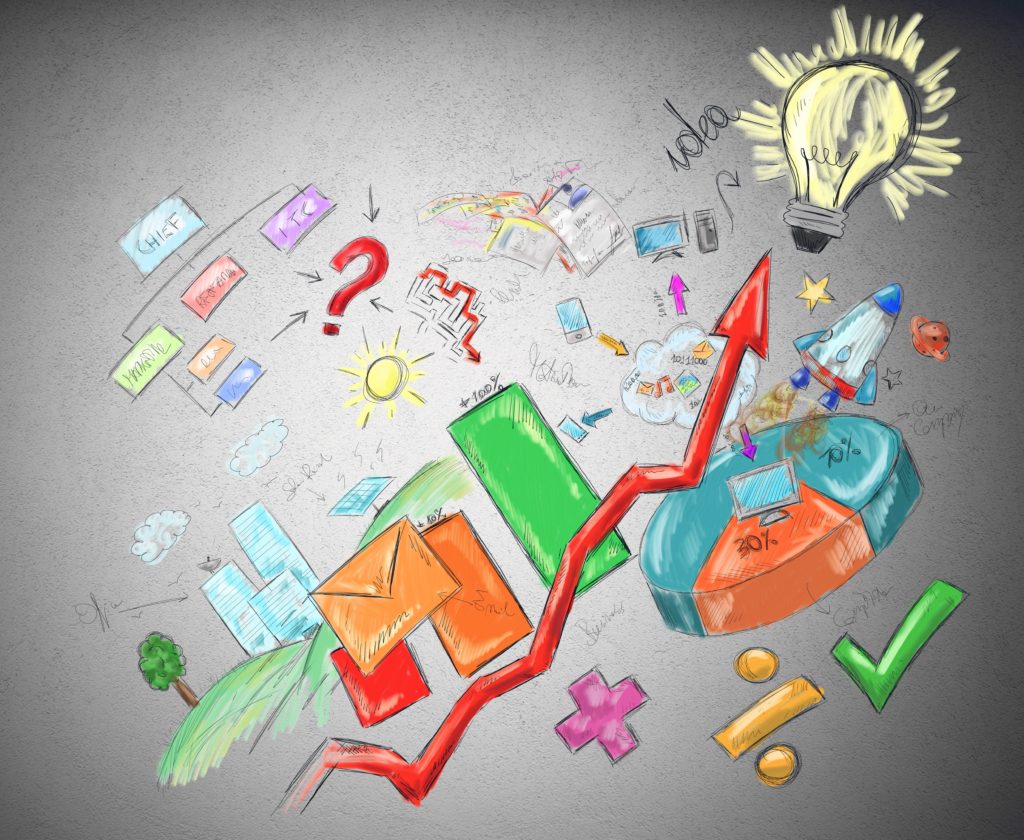
Lately, I’ve been finding myself procrastinating on a project for work. It is a super important project, and by far my top priority, but I was going out of my way to find other things to do. I did this for so long, that I started running out of those “other things” and I was having trouble doing anything related to work at all! It was a downhill spiral.
Finally, I made myself look at what was going on. Why was I avoiding this task? What was it that made it so daunting? When it came down to it, it was a new topic, something I was unfamiliar with. It was big, and overwhelming in ways where I wasn’t entirely sure what the next step was. But mostly, it was just plain hard. Even worse, I felt ashamed to ask for help, convinced it was something I should know how to do, and would be looked down upon by my superiors for needing advice.
In the end, I bucked up and asked for clarification. Looking back and reflecting, I realized that the problem felt so foreign and so hard for me because I didn’t have a clear vision of the end goal. I knew what was being asked of me, and what was being asked of a colleague, and they honestly felt like the same thing. I felt like I was duplicating effort, and wasn’t entirely sure where the line on my piece was being drawn.
It worked.
My supervisor did not criticize me for asking for help. He took some time to help clarify the problem. I had procrastinated it for so long, and wrapped it up into this big ordeal, that I had completely warped the problem in my head and turned it into something that was ten times more difficult than it what he was actually asking.
But being scared of taking that first step of making myself vulnerable and asking for help caused me weeks of wasted time. The problem itself was hard, but reaching out felt even harder.
Intuitively, humans don’t want to do difficult things.
We would much rather do enjoyable things. If something isn’t enjoyable, then we at least want it to be easy. Yet, the enjoyable things often aren’t very helpful. And the easy things usually don’t provide a lot of return for our time.
This whole experience reminded me of a book I recently read called Eat that Frog! 21 Great Ways to Stop Procrastinating and Get More Done in Less Time by Brian Tracy. In it he says:
“The hardest part of any important task is getting started on it in the first place. Once you actually begin work on a valuable task, you seem to be naturally motivated to continue.”
I found this to be true in my situation. Sitting down with my supervisor helped me to understand the end goal. In understanding the end goal, I was more easily able to dissect the first task I needed to take. I still didn’t have a step by step approach of exactly what I needed to do, or know all the answers of how to get there, but I knew the first thing I had to do. After I did the first thing, I could figure out the second thing, and so forth, so that each step afterwards became clearer. In addition, after so much time of no progress at all, once I had started to see progress, I became much more motivated to continue.
Reflecting on this exercise taught me there are several benefits to tackling hard or difficult problems and getting them out of the way.
Consider these benefits:
- It builds self-esteem and confidence. People who have high self-esteem and confidence are often happier at work, feel more accomplished, and have positive attitudes.
- It can help your career. Those who consistently do the important, and often harder, tasks, are more respected, reliable and dependable in the work place.
- The result is often better. Take, for example, cleaning the floors. Sweeping the floor might be an effective way to reduce the dirt, but scrubbing with soapy water will remove dirt and grim and your floors will be much cleaner.
- The rest of the day is more enjoyable. The earlier you finish, the more stress-free day you have. Mark Twain once said “If it’s your job to eat a frog, it’s best to do it first thing in the morning. And if it’s your job to eat two frogs, it’s best to eat the biggest one first.”
- Reduces stress. Getting the hard stuff done early reduces stress because it already comes with a sense of accomplishment. Even if it takes until 9:00 PM to complete, you’ll sleep better knowing that task is off your plate, or that you’ve at least made positive progress on it.
It can often be intuitive that we know we should do our hardest, most important tasks first. But how do we actually get ourselves to follow through with it?
Here are a few ideas that helped me out:
- Start first thing in the morning, when you have the most energy and focus. It’s easier to do challenging things earlier in the day. You’re more effective at 9:00 AM than you are at 3:00 PM. Attack the hard thing when you’re fresh. It’s only going to be more challenging later in the day.
- Maximize time spent on the hard task. If you wait until later in the day, you might run out of time to complete it. Since the hard thing is often the most important thing, you should spend enough time on it to complete it.
- Avoid thinking too much about it. This was my biggest downfall. It’s best to get started on your difficult task without spending too much time thinking about it. It’s like eating the frog. Just eat it. You don’t want to stare at it all day. The frog only becomes bigger and uglier over time.
- Reflect on your avoidance. If you didn’t succeed at not thinking too much about it, and you find yourself avoiding a task, reflect on why. See if you can dig deep to figure out what is causing your resistance.
- Delegate any unpleasant tasks that aren’t essential. Identify your most important tasks. Try to delegate any unpleasant tasks that don’t fall on that list.
- Take it one step at a time. If your task is a big project and overwhelming, break it out into whatever your next step is. It can be as small as reaching out to someone, writing an email, or reading an article. Determine what the next most immediate step you need to take is without worrying about anything after that, and then take that one step. Rinse and repeat, until your task is complete.
In the end, I was able to make huge progress on my project, in as little as a day, because of that first step, and the determination to get my hard thing done first. There are several tactics that can help, but at the end of it all, you just have to buckle down and do it. Some tasks are just unpleasant. It’s best to get your unpleasant tasks done as soon as possible.
If you can reliably do the hard things first, you’ll find that you’re much more confident, respected and successful. You’ll also be happier, because you won’t have to stress about those hard things more than necessary.

Michele is the fun-loving, easy going, project managing, financial savvy author behind the Balancing the Books of Life blog. She invites other moms to come along her journey to both become financially independent and spend time on things they love!


Leave a Reply